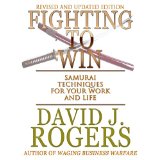 Writers and artists throughout history have feared and hated rejections of their work.
Writers and artists throughout history have feared and hated rejections of their work.
The most coveted goal of writers and artists–the end result and focus of all their education, training, efforts, and hopes–is to see their work published or mounted on display.
Artists and writers are particularly sensitive. When their work goes unaccepted and rejections occur time and again, as often happens in the sometimes cruelly competitive worlds of writers and artists, the emotions they feel are frustration, then discouragement, and then misery.
 Each rejection compounds the effects of the previous rejections and can lead writers and artists from heights of blissful optimism to the total disappearance of confidence. Yet without confidence, writers and artists cannot do their work.
Each rejection compounds the effects of the previous rejections and can lead writers and artists from heights of blissful optimism to the total disappearance of confidence. Yet without confidence, writers and artists cannot do their work.
This post shows that writers and artists are not failures if their work is rejected. They may be passing through a phase on the way to great success. Or they may find joy and peace of mind in the act of creating without making any effort to sell or publish their creations. They may find satisfaction without an expectation or desire to be published, or they may seek alternatives. Self-publishing is currently very popular, as are blogs and newsletters.
But even for writers and artists whose goal is to have their work published or accepted, rejection does not mean failure.
I Read a Post About Rejection
A few days ago I read an article which asked how writers should  respond when editors reject their work, and there it was, the questions “What is winning? Is winning the only thing that matters? Is getting published the only thing that matters? Is that the only credential that makes you a significant literary person?”
respond when editors reject their work, and there it was, the questions “What is winning? Is winning the only thing that matters? Is getting published the only thing that matters? Is that the only credential that makes you a significant literary person?”
Having been involved in many intense competitions in sports, in earning a living in bitterly competitive business environments, and in the arts, I have seen that there are more enduring, valuable, and humane ways of finding success than that. I feel that my views can help writers and artists who are trying very hard, but unsuccessfully, to achieve the ultimate goal of having their work accepted
 I remember once learning that a publishing house I was interested in submitting to typically received 5,000 unsolicited manuscripts a year. Less than seventy would be published. What about those thousands of disappointed writers? I’m sure they had worked very hard and had high hopes. But their hopes would be shattered. Are they to conceive of themselves as failures? Are they supposed to give up hope of ever being successful?
I remember once learning that a publishing house I was interested in submitting to typically received 5,000 unsolicited manuscripts a year. Less than seventy would be published. What about those thousands of disappointed writers? I’m sure they had worked very hard and had high hopes. But their hopes would be shattered. Are they to conceive of themselves as failures? Are they supposed to give up hope of ever being successful?
I think that there is a healthy response for writers and artists who submit a work and do not have it accepted, an optimistic and hopeful attitude.
Other Forms of Winning that Precede Success
If you are a writer or artist, you are not a failure if your work is rejected. You may be winning.
You are winning and not failing when you refuse to let any fear of rejection or any intimidation stop you from submitting your works. (Stung by rejections, some writers and artists grow excessively cautious about showing their work at all. They become paralyzed. Better to be bold and fearless.)
 You are winning and not failing when you are persistent in spite of setbacks, are able to recover quickly, and are resilient.
You are winning and not failing when you are persistent in spite of setbacks, are able to recover quickly, and are resilient.
You are winning when regardless of rejections, your writing and art are now better than ever before, when you are at the peak of your abilities, performing at your personal best.
You are winning and not failing when you make sure that the quality of your work (and your reputation) are always improving.
You are winning and not failing when you are mature and skilled enough to write and paint expertly. (Any person must spend thousands of hours developing an expertise in any art before they should expect to excel in it.)
You are winning when you are motivated and working hard. (Hard work will overcome many problems. Creative people have faith that effort along with talent leads to the best results; they are in love with work.)
You are winning when the work you submit is absolutely finished, polished like a precious jewel, and as high quality as it can be.
 You are winning and not failing when you are knowledgeable–about the subject, about your craft, about what the client is looking for, about everything you should know. (To creative people ignorance is not bliss.)
You are winning and not failing when you are knowledgeable–about the subject, about your craft, about what the client is looking for, about everything you should know. (To creative people ignorance is not bliss.)
You are winning also when you are true to yourself and have integrity (and are not so desperate to be successful that you compromise too much.)
You are winning when the works you produce have many strengths, like many pillars of a temple, and few weaknesses.
 Those are the ways you are really winning even during those times when it feels like you are not.
Those are the ways you are really winning even during those times when it feels like you are not.
 Whether you find creative people in remote little mountain kingdoms accessible only by mule or in big, modern, cosmopolitan cities, you will discover that they are surprisingly alike. The many traits they share are not all favorable; some are obstacles. Yet those traits–the worst and the best together–prepare creative people for fascinating lives other people look at with admiration and envy.
Whether you find creative people in remote little mountain kingdoms accessible only by mule or in big, modern, cosmopolitan cities, you will discover that they are surprisingly alike. The many traits they share are not all favorable; some are obstacles. Yet those traits–the worst and the best together–prepare creative people for fascinating lives other people look at with admiration and envy. May be “overlooked” as school children. Their talents unrecognized, they may have undistinguished elementary and high school careers, only to be recognized for their significant achievements later in life to the surprise of everyone.
May be “overlooked” as school children. Their talents unrecognized, they may have undistinguished elementary and high school careers, only to be recognized for their significant achievements later in life to the surprise of everyone. Sadly, at times may be too emotionally ill to work, particularly poets and writers who may be victims of the high and inexplicable incidence of debilitating
Sadly, at times may be too emotionally ill to work, particularly poets and writers who may be victims of the high and inexplicable incidence of debilitating  Have an insatiable need to
Have an insatiable need to  “Know who they are.” Are marked by a clear, unambiguous sense of identity, as “I am an historical novelist specializing in women’s roles in England during the Victorian era.”
“Know who they are.” Are marked by a clear, unambiguous sense of identity, as “I am an historical novelist specializing in women’s roles in England during the Victorian era.” Can be playful, child-like, humorous, silly, fun to be with, and seem younger than their age.
Can be playful, child-like, humorous, silly, fun to be with, and seem younger than their age. Benefit from a rare a
Benefit from a rare a For survival must become skilled at overcoming obstacles, of which there are many in the arts.
For survival must become skilled at overcoming obstacles, of which there are many in the arts.
